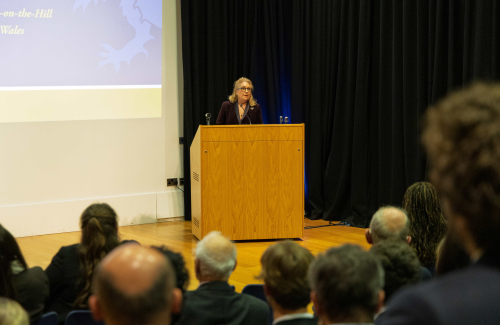More Pembroke news
Zoe Ford and Oxford team win iGEM Award
NEWS |
iGEM (International Genetically Engineered Machine) is an international synthetic biology competition that encourages students to collaborate in order to solve real-world challenges by building genetically engineered biological systems with standard, interchangeable parts. This year’s competition involved over 6000 participants across 300 teams, representing over 30 countries. This year, the University of Oxford team won the award for best diagnostic project – the first time that an Oxford iGEM team has ever won an award. Pembroke 3rd year Biochemistry student Zoe Ford was a member of the team and the first student from our College to participate in iGEM. We are delighted to report her success!
The winning project was entered into the ‘diagnostic’ track of the competition. It is called ‘See cruzi’; a new rapid, point-of-care diagnostic for congenital Chagas disease, a neglected tropical disease. This disease is a growing contemporary global concern, and in its acute phase it is difficult to diagnose because it is asymptomatic. The final diagnostic kit would allow Chagas disease to be detected by preventing the clotting of a blood sample. The team also received nominations in five other categories: Best Integrated Human Practices, Best Model, Best Applied Design, Best Wiki, and Best Presentation.
We caught up with Zoe to find out more and hear why she entered the competition:
‘I decided to enter iGEM because I wanted to help shape my own summer project to help with a real-world issue, and see it through from start to finish. Myself and the rest of the team worked incredibly hard, with late nights and early mornings, so we could get as far as possible with our idea. To be rewarded for these efforts on an international level is astounding, and makes it all worth it!’
Discover more about their project on their website.

